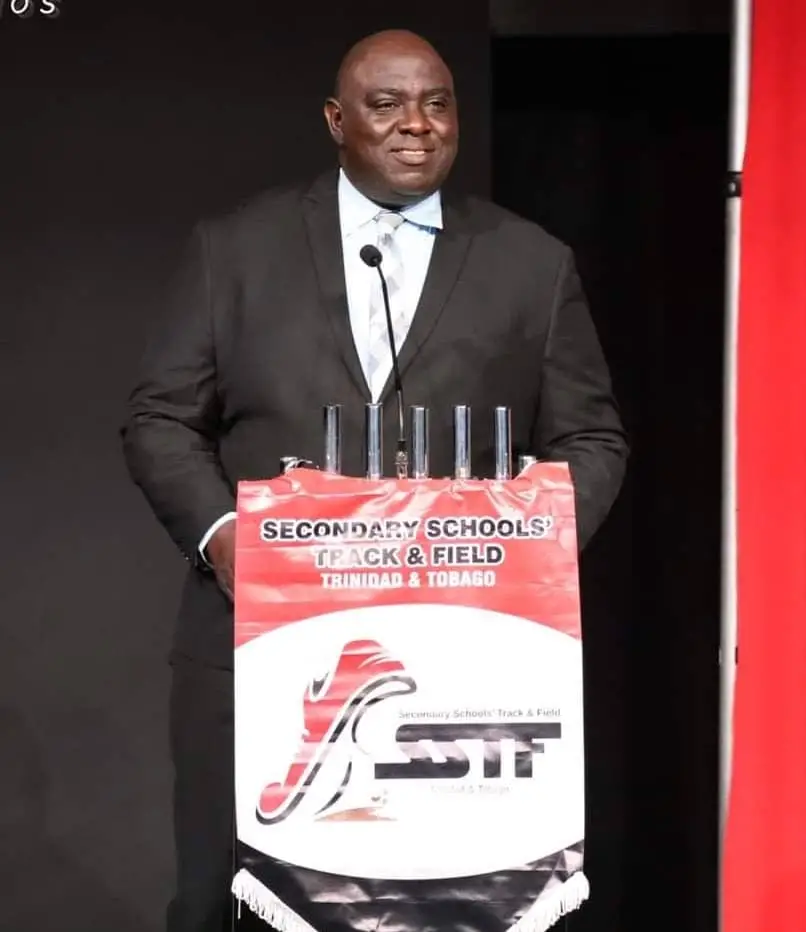
‘ISSA’ GOOD MOVE
Sporting figures welcome new international students transfer rule
Two prominent sporting figures are in support of Inter-secondary Schools Sports Association’s (ISSA) rule change regarding foreign athletes for the 2024-25 junior sporting season.
ISSA announced last week that all students transferring from a secondary school outside of Jamaica will only be eligible for its competitions after a year’s wait. This accounts for students 16 years old and younger and these students will also now be regarded as members of the school’s quota for each sport.
ISSA previously implemented this rule for transfers taking place between well-funded and lesser-resourced local schools, prompting the better funded ones to instead recruit internationally to avoid the period of ineligibility. These schools can afford to provide full scholarships to international athletes. However, with lesser-funded schools complaining about being marginalised for a lack of ability to recruit similarly, ISSA has applied the same approach internationally.
Kingston College (KC) has benefited from international recruitment, with athletes such as Aryamanya Rodgers, of Uganda, brought in for the school’s track and field, and U19 football teams. Great Britain’s Zharnel Hughes is another high-profile example from years past, as KC recruited him from Anguilla, where he was born and raised. He claimed a bronze medal in the men’s 4x100m relays at the Paris Olympic earlier this month, and is also a former European 100m and 200m champion, and World Athletics Championships 4x100m relay silver and 100m bronze medallist.
While this new rule could thwart KC’s recruitment process, its U19 football team head coach Vassell Reynolds supports it.
“Anything that will aid in the development of our youngsters holistically, academically, sports-wise, I’m all for it,” Reynolds told the Jamaica Observer. “If ISSA feels that the intake of overseas athletes will hinder the development of our youngsters, then I’m all for their decision. If you look at the other side of the coin, we have a lot of players and athletes going overseas to colleges and universities and there are no limitations there. But I can understand the message that ISSA is trying to send.”
While Reynolds thinks the rule tries to bring parity between well and less-funded schools, he says he understands the concern.
“Jamaica is becoming a country that attracts athletes from various sporting arenas,” he said. “It is because of what we have to show. We have the greatest schoolboy football competition in the world, we have the greatest Boys’ and Girls’ Championships in the world and it helps to put not just our athletes on the map, but athletes from all over the world. But I understand where ISSA is coming from.”
Trinidad and Tobago’s (T&T) Secondary Schools’ Track and Field President Joseph Brewster agrees with Reynolds.
His association participated in a study group in Jamaica to see what aspects of local high school sport development could be implemented in his country to improve their system. He has praised ISSA and its president, Keith Wellington, saying it is a policy he hopes will be implemented in T&T.
“I think that ISSA had to act to protect the integrity of Jamaica’s secondary school sports system,” he told the Observer. “It’s a decisive move and while it may have some drawbacks in giving international athletes competition, the real winner here is that coaches and teachers are forced to look to develop their own athletes. That can only benefit Jamaica.”
Brewster says when an international athlete is recruited, coaches must now call on local options at their school to fill those gaps while the incoming athlete also gets a chance to acclimatise to their new environment, which he sees as another benefit of the rule.
“For some, it’s a whole new culture and environment,” he said. “It also decreases exploitation of the foreign athlete. These athletes would normally have to come in and perform immediately, before settling in.
“As much as I would like to see foreign athletes, and athletes from my own country come in and get competition, it causes the big schools to be able to have wait, and give the smaller schools a chance to be competitive.
“It helps the economy as well. You don’t have to spend as much to recruit a local, as you would a foreigner.”
Brewster says local athletes who might not have been successful in their last season can also take a psychological boost from knowing that they can be champions the following year if there is no top athlete coming in from overseas to “blindside” them, since international athletes being recruited would likely be considered exceptional talent.
Children of Jamaican heritage as well as those who meet ISSA’s parameters for admission to sixth form, or children of member of the diplomatic corps and under the age of 16 and student-athletes who are domiciled under the UN Convention in Jamaica are exempted from the rule.
ISSA’s new rule takes effect on Sunday, September 1, with the schoolboy football season starting on Saturday, September 7.
























